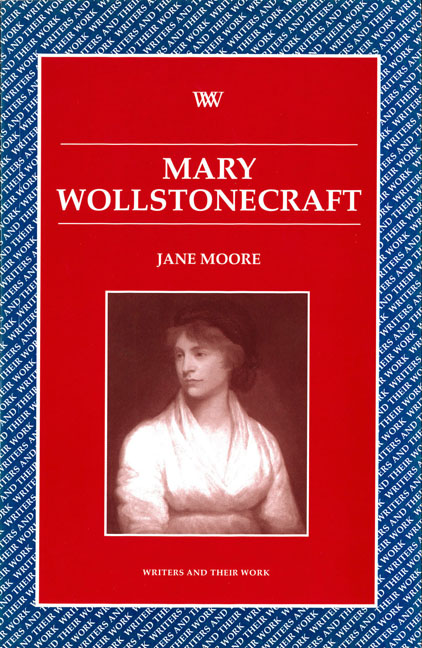Book contents
- Frontmatter
- Contents
- Acknowledgements
- Biographical Outline
- Abbreviations and References
- 1 Introduction: An Extraordinary Woman
- 2 Early Rebellion: Thoughts on the Education of Daughters, Mary. A Fiction, and ‘The Cave of Fancy`’
- 3 Professional Works: Original Stories from Real Life, The Female Reader, Translations, and Reviews
- 4 Revolutionary Protest: A Vindication of the Rights of Men, Vindication of the Rights of Woman, and The Wrongs of Woman: or, Maria. A Fragment
- 5 Romantic Ventures: An Historical and Moral View of the Origin and Progress of the French Revolution and ‘Letters to Imlay’
- 6 Final Destinations: Letters Written During a Short Residence in Sweden, Norway and Denmark, and Posthumous Works
- Notes
- Select Bibliography
- Index
2 - Early Rebellion: Thoughts on the Education of Daughters, Mary. A Fiction, and ‘The Cave of Fancy`’
- Frontmatter
- Contents
- Acknowledgements
- Biographical Outline
- Abbreviations and References
- 1 Introduction: An Extraordinary Woman
- 2 Early Rebellion: Thoughts on the Education of Daughters, Mary. A Fiction, and ‘The Cave of Fancy`’
- 3 Professional Works: Original Stories from Real Life, The Female Reader, Translations, and Reviews
- 4 Revolutionary Protest: A Vindication of the Rights of Men, Vindication of the Rights of Woman, and The Wrongs of Woman: or, Maria. A Fragment
- 5 Romantic Ventures: An Historical and Moral View of the Origin and Progress of the French Revolution and ‘Letters to Imlay’
- 6 Final Destinations: Letters Written During a Short Residence in Sweden, Norway and Denmark, and Posthumous Works
- Notes
- Select Bibliography
- Index
Summary
Wollstonecraft's radicalism lay in her ability to write to the moment, to tap into the concerns of the day, but also to complicate them in ways that raised new questions about her culture's beliefs. Her first publication was Thoughts on the Education of Daughters: with Reflections on Female Conduct, in the More Important Duties of Life (1787). She wrote it in six weeks and sold it to the publisher Joseph Johnson for ten guineas. Female education was a shrewd choice for a new author to work on, especially a female author, for it was one of the few areas of intellectual debate in which women were taken seriously, both as readers and writers. Educational and conduct books of the previous century had been written by, about, and for aristocratic gentlemen, but in Wollstonecraft's epoch a new group of middle-class writers, many of them women, specialized in works of domestic instruction intended for female readers. This gender shift had its origin in the cultural revolution that transformed the economic, social, and sexual relations of eighteenth-century English life: the rise of professional men – doctors, lawyers, bankers, industrialists, and shopkeepers – meant that for the first time in England there existed a powerful class outside the aristocracy that had the wealth to keep wives and daughters at home. We thus begin to see the emergence in this period of a domestic ideology that identified the private space of home as woman's proper sphere; in the nineteenth century this led to the unique placement of women at the moral centre of family life, but in the eighteenth, as Wollstonecraft was to observe, the cult of domesticity made them little more than ornamental dolls: fragile, flirtatious, and helpless.
Since upper-and middle-class girls were destined for domesticity, it was not anticipated that a girl would benefit from an intellectual education. On the contrary, moralists concurred that too much learning stood to ruin her chances of making the greatly desired good marriage. Reading, writing, and arithmetic were obviously important, but the bulk of her education would be directed towards domestic achievements, such as speaking French, painting watercolours, or playing parlour music – accomplishments that would serve her well on the marriage market. Any sign of an independent intellect, on the other hand, could prove a positive hindrance.
- Type
- Chapter
- Information
- Mary Wollstonecraft , pp. 9 - 23Publisher: Liverpool University PressPrint publication year: 1999



